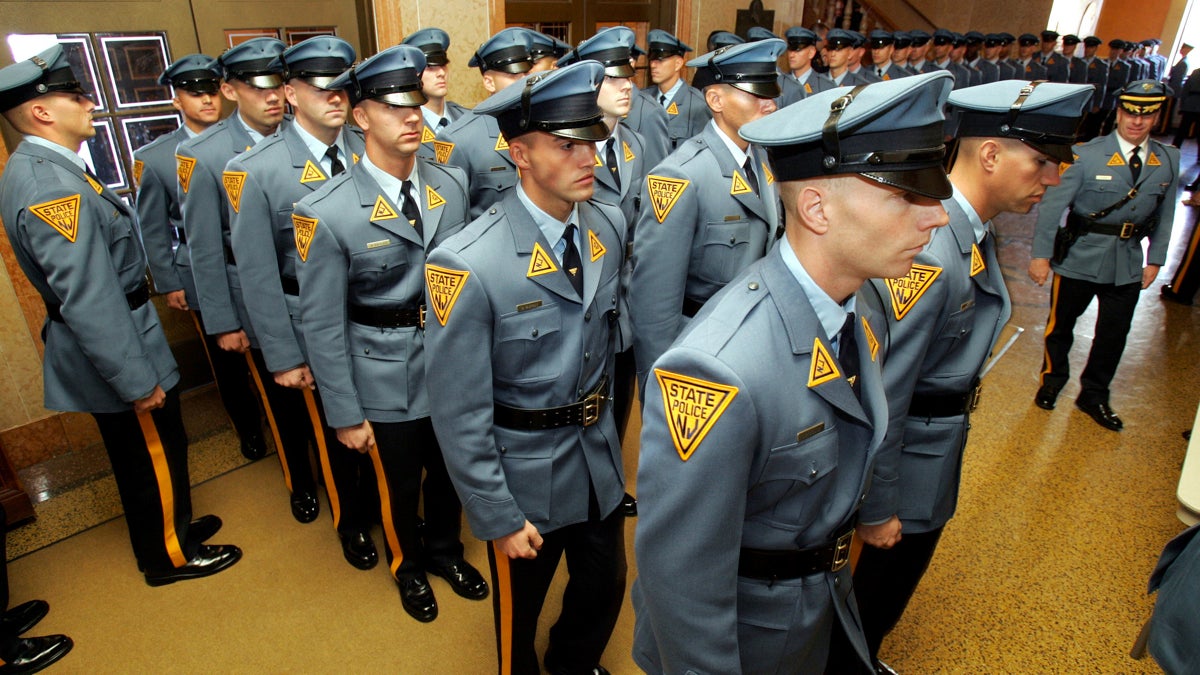NJ State Police consult advocates about updating troopers training on mental health
Listen
New Jersey State Police are looking for ways to better interact with those with mental illness. (AP Photo/Mel Evans)
As police departments come under fire for their use of force – and the need to accurately assess and diffuse encounters with people with mental illness increases — New Jersey State Police are seeking input from mental health advocacy groups on how to safely interact with people with mental illness.
The Star-Ledger of Newark reports that the changes were made after its investigation of the state’s review of Kenwin Garcia’s death in 2008, due to severe internal injuries after an altercation with state police in Hanover Township. The paper uncovered conflicts of interest in the proceedings and raised questions about the official cause of death.
New Jersey state police met with representatives from the National Association on Mental Illness New Jersey branch and the Mental Health Association of New Jersey to access resources and update training materials to include suggestions from the two groups.
Phil Lubitz, associate director of NAMI-NJ, said law enforcement authorities have to think differently when dealing with people with a mental illness. “Officers are really trained in taking control of a situation,” and there can be pressure to take control quickly, said Lubitz.
Interacting with a person with mental illness may take more time, he said.
“Stepping back from a situation, asking questions of how one can help” are ways to “de-escalate, rather than order someone to act in a certain way,” he said.
Lubitz offered three main suggestions for better policing: mentoring of junior officers by more senior troopers; learning about the communities where they work; and more scenario-based or experiential training.
State Police face different situations than police in cities, Lubitz said. Because they patrol large areas by car, they don’t necessarily have the opportunity to get to know individuals the way that an urban beat cop might.
Spokesman Capt. Stephen Jones said State Police plan on following at least one of the suggestions, but did not say exactly how new information and resources would be deployed. The state would like to do more scenario-training, and may even “get some actors in the mix,” he said, adding that mentorship is already built in to the training.
Jones denied that police reached out to NAMI-NJ and the Mental Health Association of New Jersey because of the media attention surrounding Garcia’s death. He said the force regularly updates its training curriculum as a part of its accreditation through the Commission on Accreditation for Law Enforcement Agencies, Inc.
“Police reform is something we’re always going through,” said Jones.
As for the advocates, Lubitz said he foresees a close collaboration with State Police. “We have the same goals,” he said.
WHYY is your source for fact-based, in-depth journalism and information. As a nonprofit organization, we rely on financial support from readers like you. Please give today.




